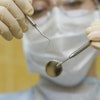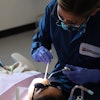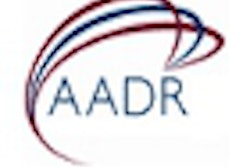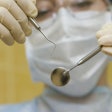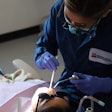
The Commission on Dental Accreditation (CODA) has voted to set accreditation standards for dental therapy education programs in the U.S. The decision is in response to a request by the University of Minnesota, the first U.S. dental school to initiate such programs.
The commission -- which functions as an agency of the ADA -- estimates that the standards will take at least two years to develop.
In 2009, Minnesota became the first state in the U.S. to approve a law allowing midlevel dental practitioners, and seven women students have completed the two-year program to be licensed dental therapists and received master's degrees as oral healthcare practitioners.
After they have applied for and received their dental therapist license from the Minnesota Board of Dentistry, dental therapists will be allowed to perform basic preventive and restorative procedures and primary extractions only with the onsite supervision of a dentist. The Minnesota dental board has approved the program.
All the students plan to go on to become licensed advanced dental therapists after completing 2,000 hours of dental therapy clinical experience. Advanced dental therapists will able to practice at facilities such as nursing homes, within the dental therapy scope of practice. They will be able to perform nonsurgical extractions of mobile permanent teeth under a dentist's general supervision with a collaborative management agreement.
“We have new roles in healthcare today,” said Ann Leja, interim dean of nursing and health sciences at the Metropolitan State University in Minneapolis, where the dental therapist program is offered. “And like other health roles throughout the healthcare system, it is common to have a national accreditation body with the expectation that a program meets the standards.”
In a special alert sent out to ADA members today, the ADA confirmed that it remains "firmly opposed" to anyone other than a dentist diagnosing oral disease or performing surgical or irreversible procedures.
"We are making that clear on a continual basis, through our publications, our national legislative and regulatory advocacy, our support for state dental societies in their advocacy, and our statements to the profession, other stakeholders, the media, and the public at large," the association stated.
While CODA is an agency of the ADA, accreditation decisions, standard setting, and accreditation policy are solely under the commission's purview, as outlined in the ADA bylaws, the ADA added.
"CODA is recognized by the U.S. Department of Education [USDE] to accredit dental and dental-related education programs conducted at the postsecondary level. USDE criteria for recognition require the commission to have a stringent conflict of interest policy," the ADA stated.
CODA does not sanction programs, the ADA emphasized.
"Its functions include formulating and approving accreditation standards by which programs are evaluated; establishing policies and procedures for conducting the accreditation program; and determining and publicizing program accreditation status," the ADA stated. "In short, CODA's recent action is not an endorsement of dental midlevels. Rather, the commission viewed the request to set accreditation standards for programs of this type as in keeping with its mission to protect the public."
Conflict of interest?
Dental therapists receive more training in prepping and restoring teeth than dental schools require, according to Terry Batliner, DDS, a private practitioner in Denver who is also the associate director for the Center for Native Oral Health Research at the University of Colorado School of Public Health. Dr. Batliner is concerned that CODA's affiliation with the ADA, which has strongly opposed the concept of midlevel providers or nondentists performing surgical/irreversible procedures, may affect the group's ability to be objective.
“CODA and the ADA are tightly related in one organization, and that is a concern to me,” he told DrBicuspid.com. “Anybody that looks at the standards for dental therapist training should do so in the most objective fashion and not have a preconceived solution and not try to justify a preordained approach.”
Dr. Batliner was impressed by his firsthand observations of the dental health aide therapist (DHAT) program in Alaska.
"I have been to Alaska and looked at their training program for dental therapists, and I challenge anybody to go there and actually look at the program, look at the curriculum, look at the faculty, watch the therapists work, and find that it is not an appropriate solution for Alaska and perhaps many other locations," he said.
The dental therapist model first began in the 1920s in New Zealand and is now well-established in more than 40 countries. Last year the Kellogg Foundation released an evaluation of Alaskan DHATs that found that these midlevel providers offer safe and competent care to residents of remote and underserved native communities.
A report by the Pew Center on the States contends that private practice dentists can improve both their productivity and profitability by adding dental hygienists and dental therapists to their teams.
However, state dental associations across the U.S. have made it clear they oppose the concept of midlevel providers or nondentists performing surgical/irreversible procedures.
"The ADA has adopted an ongoing effort to educate all concerned that creating midlevel practitioners -- whether it occurs or not -- will not have an appreciable effect on improving the oral health of the millions of Americans who lack access to dental care," the association noted.
State dental boards can set the specific scopes of practice for the dentists and allied dental personnel over which the boards have jurisdiction, the ADA noted, and state dental boards can certify educational and training programs without accreditation by CODA.
CODA Chairman Donald Joondeph, DDS, will appoint a task force of dental educators and practitioners with experience in dental education to develop the new standards, and the task force will report to the commission on its progress at the August 2012 CODA meeting, the ADA said.
Drafts of the standards will go out for comment, which usually lasts a year, and includes open hearings at the ADA's annual meeting. CODA will then review the comments and may revise the proposed standards. If the revisions are significant, the draft standards may go out for comment for an additional year, the ADA noted.
